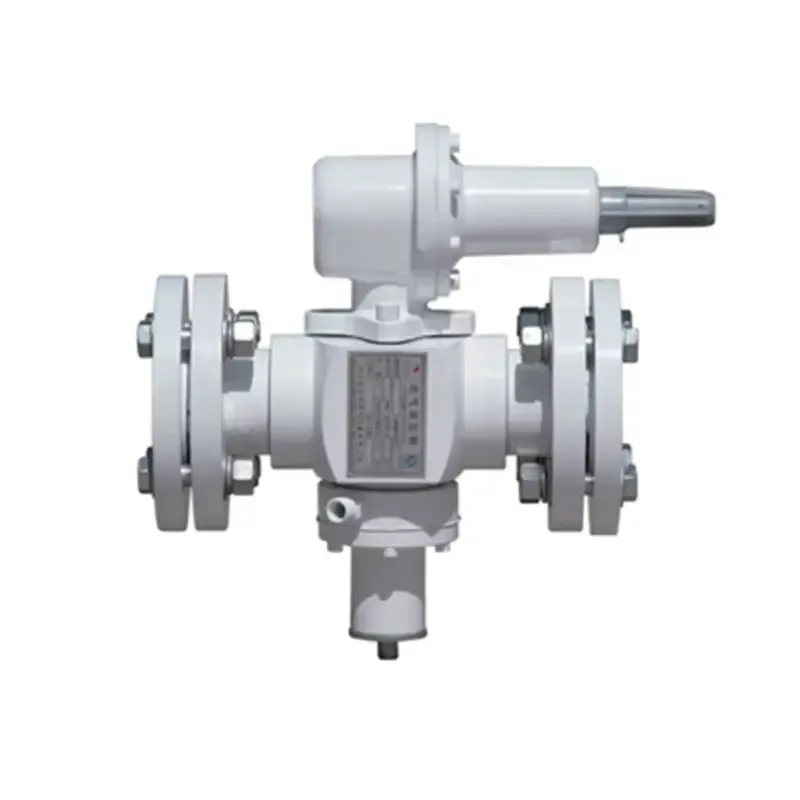
Dec . 05, 2024 18:41
Back to list
صمام الأمان
Understanding Safety Valves The Guardian of Pressure Systems
Safety valves are critical components of many industrial systems, designed to protect equipment and personnel from the dangers of excessive pressure. These devices function as a fail-safe mechanism, ensuring that pressure levels remain within safe limits, thereby preventing catastrophic failures and accidents. The importance of safety valves in engineering and industrial applications cannot be overstated, as they play a pivotal role in maintaining safe operational conditions.
What is a Safety Valve?
A safety valve is a mechanical device that automatically releases pressure from a system when it exceeds a predetermined level. This action prevents the risk of explosions or other dangerous situations caused by overpressurization. Safety valves are commonly used in various settings, including power generation plants, chemical processing facilities, and HVAC systems. These devices are engineered to activate under specific conditions, thereby providing a controlled release of pressure.
How Do Safety Valves Work?
The operation of safety valves relies on a simple principle of physics. When the pressure in a system rises to a certain threshold, the valve's mechanism opens to allow the excess fluid or gas to escape. This action reduces the pressure within the system, reverting it to a safe level. The valve typically closes automatically once the pressure drops back within acceptable limits.
There are various types of safety valves, including
.
2. Pilot-operated safety valves These valves use a small pilot valve to control a larger valve, providing precise pressure regulation.
صمام الأمان

3. Buckling-pin safety valves This type employs a pin that buckles under high pressure, allowing the valve to open.
Each of these designs has its advantages and specific applications, but all share the primary goal of safeguarding pressure systems.
Importance of Safety Valves in Industry
1. Preventing Catastrophic Failures Safety valves are essential for preventing equipment failures that could lead to environmental disasters, injuries, or loss of life. By allowing controlled release of pressure, they minimize the risk of explosions and structural failures.
2. Regulatory Compliance Many industries are required to comply with stringent safety regulations. Safety valves help organizations meet these requirements, ensuring both legal compliance and the protection of workers and assets.
3. Operational Efficiency By maintaining optimal pressure levels, safety valves contribute to the efficient operation of systems. They help prevent downtimes caused by excessive pressure, which can halt production and lead to significant financial losses.
4. Cost Savings Investing in high-quality safety valves can lead to long-term cost savings. By reducing the likelihood of equipment damage and extensive repairs, businesses can protect their financial investments and enhance their bottom line.
Conclusion
In summary, safety valves are indispensable components of pressure systems, serving as the frontline defenders against the risks associated with overpressure. Their proper functioning ensures that industrial operations remain safe and efficient, protecting both personnel and equipment. As engineering technologies continue to advance, the design and materials used in safety valves are also evolving, promising even greater reliability and performance. Understanding the role and importance of these devices is vital for anyone involved in industries where pressure systems are a critical aspect of operation. By prioritizing the maintenance and functionality of safety valves, companies can foster a culture of safety and efficiency in their workplaces.
Latest news
-
Safety Valve Spring-Loaded Design Overpressure ProtectionNewsJul.25,2025
-
Precision Voltage Regulator AC5 Accuracy Grade PerformanceNewsJul.25,2025
-
Natural Gas Pressure Regulating Skid Industrial Pipeline ApplicationsNewsJul.25,2025
-
Natural Gas Filter Stainless Steel Mesh Element DesignNewsJul.25,2025
-
Gas Pressure Regulator Valve Direct-Acting Spring-Loaded DesignNewsJul.25,2025
-
Decompression Equipment Multi-Stage Heat Exchange System DesignNewsJul.25,2025

